 We know left untreated hearing loss can negatively affect our quality of life. Studies link untreated hearing loss to stress, depression, social isolation and even dementia. Untreated hearing loss also increases the risk of falling, putting personal safety at risk. But the person with hearing loss isn’t the only person affected by it. Hearing loss impacts spouses, family members and friends. Repeating things over and over during conversation can be exhausting and frustrating. It can also be heartbreaking for familyand friends to watch a loved one retreat, avoiding socialsituations they once enjoyed. Don’t enable their denial Encouraging a loved one to seek help for hearing loss is the right thing to do, even when it’s hard to know how to help. It’s important to speak with your loved one directly about their hearing loss. Gently remind them every time you need to repeat or rephrase parts of conversations they miss. Without realizing it, well-intended ways we try to help can delay treatment. Repeating or rephrasing conversations may prevent our loved ones from realizing how much they are missing. Make sure your well-intended efforts aren’t preventing your loved one from realizing how hearing loss is impacting their life. Schedule a hearing check-up for them Offer to schedule and attend your loved one’s first appointment with a hearing professional. You could also offer to do online research and compile helpful information from reputable sources about hearing aids and hearing loss. Doing so will help your loved one feel at ease and prepared for their appointment. Bring any questions you have with you to your appointment with your hearing professional. Your hearing professional will discuss the results of your loved one’s hearing test, discuss the best treatment, and answer any other questions you may have. The sooner they seek help, the happier everyone will be Don’t be surprised if your loved one is hesitant to seek help for their hearing loss. Be gentle and consistent. On average, hearing aid wearers wait 5-7 years to seek treatment. Which means, your loved one is probably aware of their hearing concerns but might need a little push of encouragement and support to treat it. Remind your loved one that they have nothing to lose and so much to gain. Being patient and supportive will help your loved one get the hearing help you will both benefit from. www.livingstonhearing.com
0 Comments
 It’s no secret that hearing aids are invaluable when it comes to communicating with others and gaining greater awareness when you’re out and about. But what if you choose to stay home or simply don’t have anywhere you need to be? Do you still need to put on your hearing aids? The answer—absolutely. Wearing your hearing aids at home, even if you’re by yourself, is important because it can help you: Acclimate to hearing aids faster Wearing your hearing aids around your household is especially helpful if you have just started wearing them. Keeping your devices in as much as possible each day allows your brain to get used to those everyday sounds you haven’t heard in a while, including minor background noises like your refrigerator humming or clock ticking. These sounds can seem overwhelming at first. But the more you wear your hearing aids, the more natural the sounds will feel—and the easier it will be to tune them out. Keep your brain active Even if you’re simply exercising your right to enjoy a quiet day at home, wearing your hearing aids can be highly beneficial to your cognitive health. How? By keeping your brain engaged and processing sound. This is a good thing, according to research: In one study, renowned hearing expert Dr. Frank Lin and researchers from Johns Hopkins examined 639 participants with untreated hearing loss over the course of 12 years. What they found:
So, it’s a win-win: You’re not only hearing better again, but also taking a preventative measure against dementia. Maintain your safety Donning your hearing devices at home is one of the best things you can do to uphold the safety of yourself and others. Hearing your best makes it easier to hear emergency sounds like smoke alarms or sirens, along with everyday important sounds like an oven timer. Wearing hearing aids has also been shown to reduce your risk of falls by 30%. This is especially significant given the startling statistic that 1 in 4 older adults will fall each year in the US, according to the Centers for Disease Control and Prevention. Moreover, research has found that most falls occur in the home. But if by chance you do experience a fall, Starkey’s latest hearing aids, Genesis AI, help to keep you safe: They can sense if you fall, and then have the My Starkey app alert the loved one or caregiver of your choice in the event you need help. Enjoy staying connected Obviously, today’s hearing aids are essential for communicating with any loved ones at home with you—but did you know they can also connect you to the outside world, right from your armchair? By easily pairing them with your smartphone, tablet, TV, and more, you can stream audio straight to your hearing aids. It’s never been easier—or more enjoyable—to:
By Starkey Hearing Today’s fact raises awareness of two of the biggest detriments of hearing loss—loneliness and social isolation. And they are not a huge surprise, when you think about it: Humans are social creatures, and when hearing, communicating, and interacting become more challenging due to hearing loss, it’s naturally easier to decline invitations, ship and transact online, and just stay home.
The unfortunate reality of living a socially withdrawn life, however, is that it not only can impact your overall life happiness, but also increase your risk for dementia, according to researchers at Johns Hopkins. The good news: Treating your hearing loss with hearing aids can help you stay connected and involved with the world around you. More specifically, better hearing can help you maintain a strong support network, life engagement, and an active social life—and the rewards that come with them. Let’s take a closer look at the ripple effect that staying connected through better hearing can have on your well-being: Strong support network Hearing better makes it easier to maintain your relationships with friends, family, caregivers, and other important people in your life and in turn, communicate your needs with them (and vice versa). As a result, you’ll have your “village”—the people who are there for you when you need them. According to Johns Hopkins Medicine, such a support system can help reduce your stress and physical health problems, plus improve your emotional well-being. Engaged in life Whether you take an art class, volunteer in your community, or simply spend more time with family and friends, better hearing helps make it easier to live an active lifestyle. Have conversations. Hear instructions. Enjoy the sounds of birds, laughs, and other joys of life around you. Studies show that participating in life can help you feel happier and healthier. And by “healthier,” they also mean you may lower your risk for heart disease, stroke, and some types of cancer. Socializing When you can hear better, you are more likely to take part in conversations, make plans with others, go to restaurants or family events, and so on. And this is a good thing: Social isolation is linked to a 50 percent increased risk of dementia, cites the Centers for Disease Control and Prevention. But on the brighter side, numerous studies have shown that an active social life may help you live longer. (And have fun doing it, right?) So, if you’ve been thinking about getting your hearing tested or treating the hearing loss you know you have, why wait? By Starkey Hearing on Aug 11, 2023 Many people, due to the commercialization of the Easter Holiday, think of Easter Bunnies. Since bunnies are generally small animals and very vulnerable to the dangerous environment they live in, they were designed with big floppy ears. These beautiful long ears don’t just make them look good, but they provide an outstanding hearing ability. They can hear sounds that are almost two miles away. (I don’t think I would hear a coyote 2 miles away.) Those same ears also play an important part in regulating a rabbit’s body temperature. Making up around 12% of their total body surface, the ears act as the major area for heat loss which is vital, in warmer climates and seasons, as bunnies aren’t well equipped to release heat in other ways. Then of course, there are the Baby Chicks. Did you know that baby chicks can hear outside noises while still inside the shell? This is how some songbirds learn their song. Like humans talk to their babies in the womb, ducks and chickens speak to their eggs so that when they hatch they recognize their parents’ voices. Scientists have found that Zebra Finch parents have a special song they sing to their eggs to warn them if the weather is getting hot. When sung it results in earlier hatching, producing smaller babies who find it easier to keep cool. How cool is that? While presbycusis (age-related hearing loss) seems inevitable for humans, chickens have the remarkable ability to regrow damaged hearing cells. They get to enjoy their favorite sounds for life. Did you know that if commercial egg farmers play classical music for their chickens to listen to, they lay more and larger eggs? (I didn’t know this either until I googled Easter and Hearing.) Scientists have been studying birds to figure out how they rejuvenate their damaged hair cells to see if they can find a way for humans to do the same. With Easter, of course we can’t forget the chocolate. Ears love chocolate! Dark chocolate is the best because it contains zinc and magnesium which help protect ears from age-related hearing loss and noise-related damage. Chocolate also boosts the immune system to keep infections away. Now that you are thinking about hearing and Easter, pay attention to what you are missing! Can you hear your Pastor teach about the Easter Story? Is the conversation with your loved ones over Easter dinner difficult to follow? If you are disappointed that your being served SPAM for dinner instead of HAM, you just may want to get your hearing checked. TriStar Hearing offers FREE hearing screening and consultation. Call 1-731-388-3669 to schedule your appointment. Information for this article came from: https://www.hearing.com.au/easter-ears/ 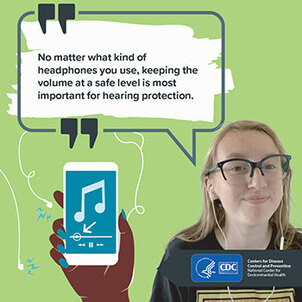 \\Hearing protection is for everyone. There is no cure for hearing loss! The good news? You can prevent hearing loss by protecting your hearing. Avoid loud noise whenever possible and turn down the volume on personal listening devices. If you can’t avoid loud noise, use earplugs or earmuffs to protect your ears. If you suspect you may already have hearing loss, take steps to keep it from getting worse. Get your hearing checked. CDC supports National Protect Your Hearing Month (#NPYHM). It is an annual event each October to provide an opportunity to raise awareness about hearing and speech problems. People are encouraged to think about their own hearing, and to get their hearing checked if they think there might be a problem. Early identification and intervention for hearing loss is important. Many people live with unidentified hearing loss, often failing to realize that they are missing certain sounds and words. Checking one’s hearing would be the first step towards addressing the issue. Do you use your music, your show, or a podcast to shut out the noise around you? Be cautious; hearing loss is real. A volume that lets you hear someone a few feet away is a safer way to go. Did You Know? Repeated exposure to loud noise over the years can damage your hearing—long after exposure has stopped. This is just one of the many informative facts available on CDC’s National Center for Environmental Health’s new hearing loss website. Think you are aware of how to protect yourself? When it comes to hearing loss, we can all think of the usual suspects: attending sporting events, entertainment venues, and loud concerts. Volume isn’t the only factor to consider. Noise exposure is cumulative. Practice safe listening at home, school, and while commuting by reducing the duration of headphone use. Everyday activities can damage hearing. Such as
Browse these pages to discover critical information you are likely unaware of. Useful Info Is the noise too loud? If you need to shout to make yourself heard, yes.
By the Numbers Sound is measured in decibels (dB). A whisper is about 30 dB, normal conversation is about 60 dB, and a motorcycle engine is about 95 dB. Noise above 70 dB over a prolonged period may start to damage your hearing. Loud noise above 120 dB can cause immediate harm. Hearing loss is the third most common chronic health condition in the United States. Almost twice as many people report hearing loss as report diabetes or cancer. In the United States, about 40 million adults aged 20–69 years have noise-induced hearing loss, and about 1 in 4 adults who report “excellent to good” hearing already have hearing damage. Think that hearing damage is usually workplace-related? Activities away from work can damage hearing just as much as a noisy job. Over half of all adults with hearing damage do not have noisy jobs. The average person is born with about 16,000 hair cells within their inner ear. These cells allow your brain to detect sounds. Damaged inner ear cells do not grow back. So, protect your hearing, and if you already have hearing loss, or are experiencing pain, discomfort, or ringing in the ears, take steps to keep it from getting worse. Article from cdc.gov 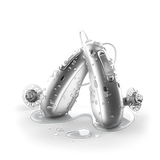 Introducing Phonak Audéo Life™ – the world’s first waterproof* rechargeable hearing aid. Proven Paradise performance Part of the Phonak Audéo Paradise family, Phonak Audéo Life delivers crisp, natural sound1 and is capable of being submerged in up to 1.64 feet of fresh water, salt water or pool water. Audéo Life is the ideal solution for patients who put their hearing aids under more pressure in physically demanding environments or those looking for a hearing aid that will withstand strenuous activities. Audéo Life highlights: • Waterproof* • Rechargeable • Unrivaled** sound quality • Empowering smart apps • Universal connectivity to smartphones, TV, Roger and more • Multiple Bluetooth® connections • Tap Control for easy access to Bluetooth functionalities Phonak Charger Case Go™ The Phonak Charger Case Go is ideal for patients who want to charge their hearing aid on the move. This inductive charger is exclusively designed for Audéo Life. Featuring an internal battery, it can fully charge the hearing aids up to 3 times on a single charge and is easy to use. Audéo Life has been extensively tested beyond the normal IP68 rating to withstand submersion in not just fresh water, but also salt water and pool water at depths of up to 50 cm or 1.64 feet. Audéo Life allows you to interact confidently and fully participate in the activities you enjoy. 1. Taphuntsang, D. (2020). Market research ID 4387. Please contact [email protected] if you are interested in further information 2. Taphuntsang, D. (2020). Market Research ID 4398. Please contact [email protected] if you are interested in further information. * up to 50 cm or 1.64 feet ** Compared to Phonak Audéo Marvel 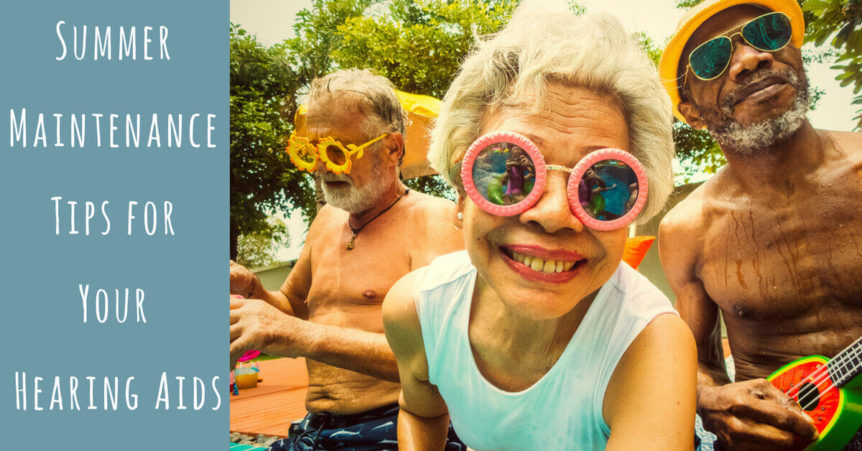 Summer is here and while you prepare to get out and have some fun in the sun, make sure you know how to treat your hearing aids. Summer can present some serious concerns for your hearing aids from water exposure to bug spray. Make sure you know how to maintain and protect your devices everywhere you go. Water While most hearing aids have some form of moisture protection –like nano-coating – your hearing aid isn’t designed for swimming or water sports (one exception is the Phonak Paradise Life Rechargeable Aids which are explicitly designed to be waterproof). The electronics in hearing aids are vulnerable to water damage which can ruin a device. Salt water can present an extra threat to hearing aids, as both the water and the crystallizing salt can cause harm. When you head out to the pool or beach, store your hearing aids in a waterproof case that you keep out of the way from splashing water and puddles. Always remove and protect your hearing aids when you are around water to protect their performance and lifespan. Heat The temperature climbing doesn’t do your hearing aid any favors. In areas of direct sunlight, or spaces like cars where heat accumulates are especially bad spaces for hearing aids in the summer. Extreme heat can harm the electronic components of your hearing device as well as warping or cracking the protective outer shell. Don’t leave your hearing aids in a hot car and keep them away from direct sunlight. Sand Small sand particles can be big trouble for your hearing aids. Sand in a hearing device can impair its performance and cause permanent malfunctions. Don’t ever touch your hearing aids if your hands are sandy – instead, wait until you can wipe them down with a clean towel. If you are storing your hearing aids in a case, make sure the case is also not exposed to sand and brush down the exterior before removing your hearing aids. Spray Ocean spray can damage your hearing aids, but other summer sprays can also be a hazard to your hearing devices. Spray-on sunscreen and bug spray introduce small particles and moisture to the air that can get into your hearing aid, especially if they are sprayed directly on your device. Often aerosol spray particles are very fine and can infiltrate your hearing aids even when larger particles, like sand, cannot. When applying spray this summer, cover or remove your hearing aids to keep them out of harm’s way. Wipe down your hearing aids every time you remove them to get rid of any lingering particulate. Sweat More heat means more sweat which means more moisture exposure for your hearing aids. Nano-coating on the exterior of most hearing aids will help prevent excess moisture from condensing or penetrating your device, but during the summertime it is best practice to spend extra attention towards keeping your devices dry. Use a nightly dehumidifying case to help prevent moisture damage and if a day is excessively sweaty take breaks to wipe down and dry your hearing aids. Choosing the Right Hearing Aid Wondering how to pick a hearing aid that can keep up with your summer lifestyle? When you are concerned about hearing aid durability, consider the IP rating associated with the model. In hearing technology, IP stands for “ingress protection”. The IP rating is a two-digit number that ranks a hearing aid’s resistance to particles and moisture. For the two digits, the first number ranks particle resistance and the second indicates water resistance. The higher each number is, the better the device is protected. An IP rating of 58 would offer more protection than an IP rating of 36. When comparing models, IP ratings can be useful when you have special lifestyle factors to consider and can help you choose the right hearing aid for your needs. by customhearing.net In his newest blog, Justin Osmond — who was born with a severe-to-profound hearing loss and has been wearing hearing aids since he was two years old — explains why he gets hearing aids from a hearing professional vs. buying them online or over-the-counter.
Let me start out by saying that there’s nothing more important than being connected to each other through mutual respect, appreciation and understanding. And for me, the best way for that connection to take place is through the human heart — listening and knowing that someone has your best interest at heart. I’m of the opinion that closeness and connection is a matter of communication, communication is a matter of listening, and listening is a matter of understanding. How can we draw close to someone or something unless we communicate with each other? How can we communicate with one another if we don’t allow the opportunity to hear each other out and listen? And if there’s no closeness, communication or listening taking place… then there’s no understanding between the two parties. That is why meeting with a hearing professional is so crucial and worth the additional cost versus purchasing hearing devices online or over the counter. Here’s the bottom line and the main difference between the two scenarios:
Don’t leave your hearing to someone who doesn’t listen Would you rather have a real professional who listens to you and hears you out? Wouldn’t it give you peace of mind knowing that a real expert in this industry makes you feel valued, important and understood and is always there for you before, during and after the purchase of your services and products? Someone who has the human touch and strives to fully understand your hearing situation is a component of creating closeness, connection and complete assurance and understanding. Or would you rather have an automated online service where it may be convenient to purchase a hearing device, but you are then left with a lot of questions and comments and it’s up to you to try and resolve the issue on your own? A similar outcome could be said for over-the-counter purchases as well. The main difference is the ‘human touch.’ In my experience of wearing hearing aids for over 43 years, people don’t care how much you know until they know how much you care. I love the connection and relationship I have with my hearing specialists and audiologists. They don’t just give me their ears… but also their eyes. They are a full captivated audience! Everyone in my hearing clinic gives me their undivided attention and make me feel valued, heard and understood. Better hearing is best achieved with a human touch Helen Keller says, “Deafness separates people from people” so if that’s the case, why are we dividing the deaf and hard-of-hearing communities even more by separating them from hearing professionals and directing them to an online store or over-the-counter retail stores? I’ll let you ponder that question for yourself. 😊 Hearing or No Hearing… I think we can agree that the issue isn’t usually the volume, but the quality of our customer service and products. As a deaf and hard-of-hearing customer, a 5-Star rating would require customer service from a hearing professional who listens to understand and not an online robot who listens to respond. It’s all about the ‘human touch.’ We all want to be connected to life… to each other… and to hear and understand life’s precious sounds. I stand by our hearing professionals who are truly dedicated to not only helping us hear better, but to live better. You can follow Justin Osmond on Facebook at JAOsmond; on Instagram at justin_osmond; on LinkedIn at https://www.linkedin.com/in/justinosmond/ or at his website www.justinosmond.com |
AuthorJamie Martin, NBC-HIS Archives
September 2023
Categories |
Proudly powered by Weebly
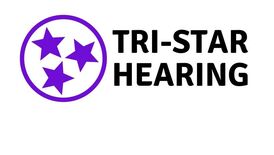
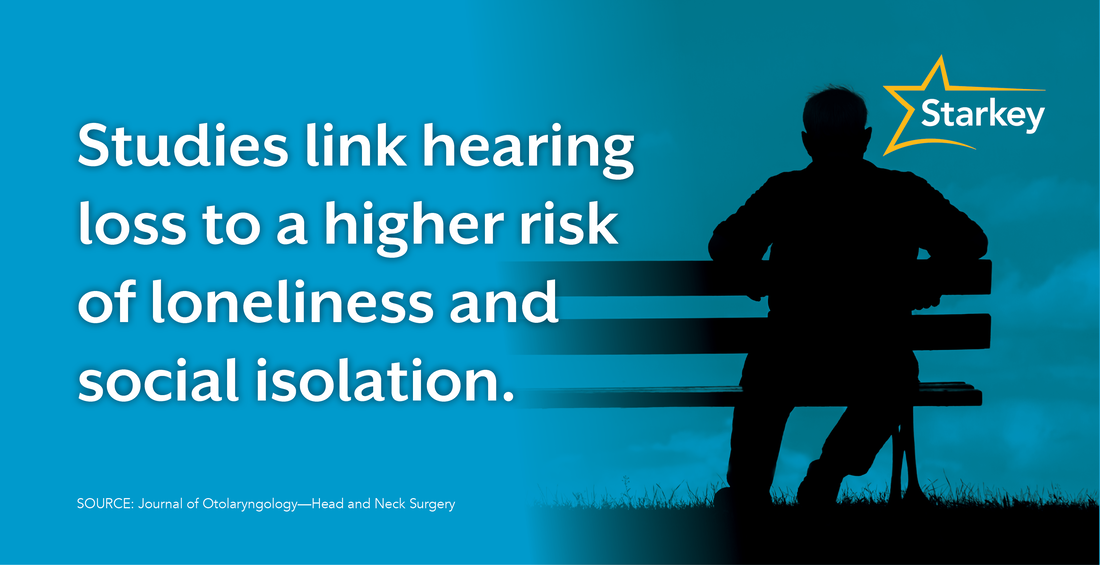




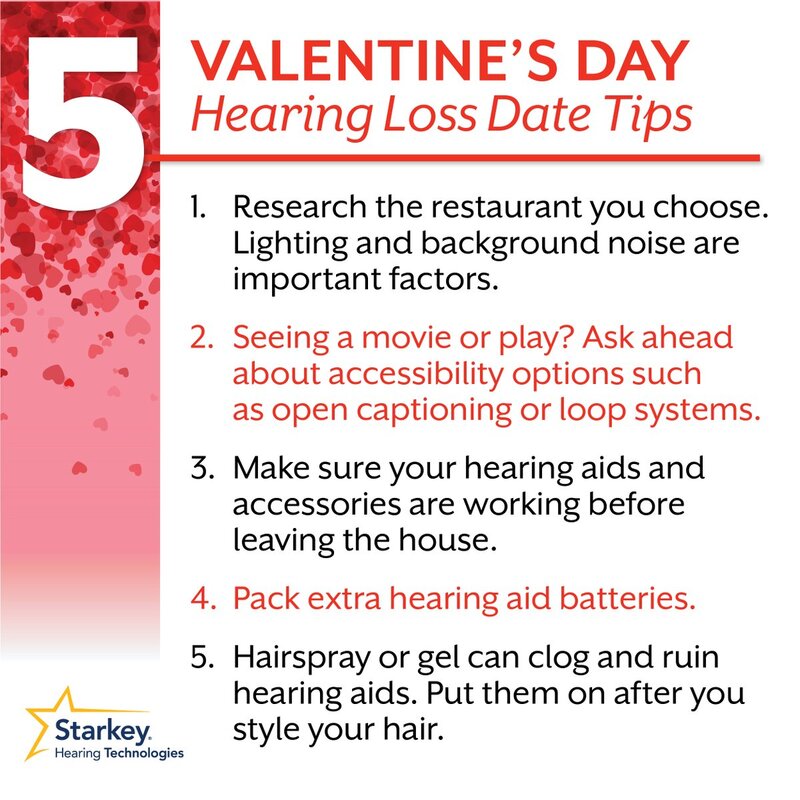

 RSS Feed
RSS Feed